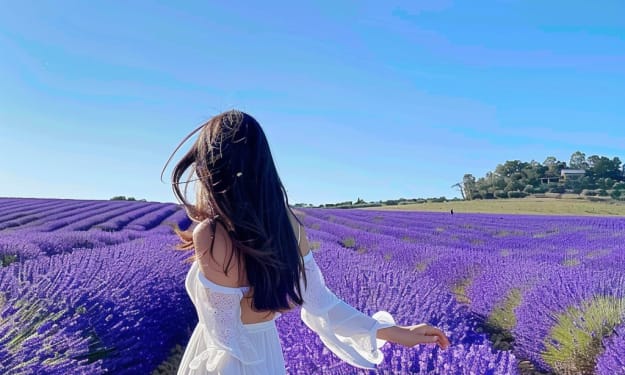Somewhere in This Timeplace
Chapter One: Alphesia

Nobody can hear a scream in the vacuum of space, or so they say. And yet my mother’s voice seems to echo back to me from every shadow of the sky. The warm, resonate sound of her scream is pinned in the stars. It hangs in the clouds around every moon.
Her final word, my name: Alphesia. I hear it everywhere.
And yet, I still can’t tell: was it called out in desperation, for help? Was there something I could have done when Xenthjai crashed toward her and her tether was severed? Something beyond screaming back to her from the gated pavilion, where I had snuck between rows of Scorse fighters to try to join the defense? Or did she call out my name, knowing I could hear her, knowing it was her last word?
I fidget slightly in my chair. It is a circular frame on a thick rod bolted to the floor, so when I move, I swivel slightly, as if out of orbit.
“Alphesia?” Doctor Hu calls to me gently across the void of thoughts in my mind. “Can you tell me what you’re thinking?”
Outside the wide windows that circle the office, a glimmer of light flickers in the right periphery of my vision and I turn to stare at it. It’s a silly thing to take interest in. There’s no knowing for sure if it’s a gleam on a piece of metal just beyond our craft walls or if it’s billions of years away, a flicker of a dying star or a universe being born. Up here, there is no difference between time and space. They are both simply ways of the describing the vastness around us, that which contains us and controls us and sets us free.
It is not Dr. Hu’s fault that his recovery plan does not work on me. The therapy, as he calls it, is a relic of another place. A place where people believed in a linear time, a place where one day my mother would have been with me, and the next she wouldn’t have been. It’s not like that during this timeplace. Here, her voice is a part of the matter that holds me up. She is present with another version of me in another space, another time, but at this same moment, because one “moment” holds all our existence. Our laughter holds the ache of loss. Our tears are cried in joy and grief. Happiness feels sweeter because it is laced with deep sorrow. The older adults talk about nostalgia for another time and another place. But in this timeplace, nostalgia makes up every interaction. We can’t be “present.” We can only try to find balance between what happened, what’s occurring, and what will happen. We can try our best to pinpoint a sensation in an endless plane of colliding seconds.
I continue to stare at the blackness outside the window.
“Alphesia?”
The blackness is not one-dimensional. It doesn’t feel like empty space, but it doesn’t feel stifling either, like people once thought it would. The human eye becomes used to perceiving shadows in darkness. My mother had told me once about oceans on Earth and how the water would sometimes look grey or green or brown or dark blue or turquoise, depending on its depth and the sand particles in it and the speed it was moving. The sky is like that now, I suppose. When I was little, I would imagine fish swimming past my window, as if the sky was actually ocean water all around us.
My mother told me we used to live by an ocean on Earth. I had even stood in it once, she said. I had screamed because apparently the ocean pulled away the sand below my feet as it was drawn back out to its depths. Sometimes, I can imagine this feeling, still: the floor slipping out from beneath me, pulling me away.
I was one of the last ones born on Earth before the Clash. Most of my classmates had been born here, on Plaxium: Craft XIV. Almost everyone on Earth had a choice: to stay and disintegrate with the Earth, or to move onto one of the planet’s 200 crafts. Strangely, many people had decided to stay on Earth, rather than move on to the crafts. I still don’t understand exactly why. My father stayed. Cairn; that was his name. My mother said he had always loved the land. “He was land, I was sky,” she’d say. He would bring her back down when her thoughts threatened to carry her away.
He had been a dairy farmer, she told me. People tried to convince him to come. There are animals on the crafts, of course, and farmers’ skills were still needed. But my mother said she never tried to change his mind. She loved him, and he loved the land, and the best way she could love him was to let him stay.
“Alphesia.”
Dr. Hu says my name. I hear exhaustion and sadness in its tone. “Our time is up,” he says.
—
I wind down the circular corridors of the craft. Everything a circle, like space expanding outward, like time spiraling in.
Things have not been the same here since Xenthjai discovered us. People move swiftly down corridors, eager to get into the safe hub centers. The blue emergency lights stay on all the time, rippling off the metallic floors like the Earth’s ocean waves that I imagine. More often than before, Scorse fighters pace the passageways, carrying their R480 laser strykers and giving curt nods to those they passed.
“Morning, Alphesia,” one of them says as she strides toward me. This one is called Pharagh. Most of the Scorsi know me because of my mother, because of her work and because of her “sacrifice,” as they called it.
“Morning,” I respond. Even spoken quietly, our voices ping back to us off the empty walls in this end of the craft.
“Heading back to class?” Pharagh asks me, raising her eyebrows slightly.
I give her a slight smirk. “Of course. What will they learn without me?”
“That’s the kind of humble attitude we’re looking for,” Pharagh calls back to me over her shoulder, having passed me without slowing. “Just pass the classes, Alphesia. Less acting out, more honing in. We want to be able to at least pretend to recruit you next year.”
“Ha! You’re going to have to do more than pretend! I want to be woo-ed!” That last part of this I say at higher volume, as Pharagh had rounded the next bend and left my sight. The sound reverberates back to me slightly. I keep the smirk on my face for another loop down the stairs.
I have been trying to join the Scorse fighters since before Xenthjai was even discovered. Scorsi are respected and feared on the craft, and my mother worked closely with them my whole life, providing them with newer technologies, running their training camps, and assessing their skills. She’d let me sit with her when it was safe, describing the assessments to me under her breath as she watched them: this one needs a wider stance, this one’s visual reflexes are slow, this one is initiating movement from their head, not their hips, that’s why they’re unstable. I would soak it all in, a warrior in my own personal training.
The Scorsi defend our craft, but also set out on missions to support allies or to try to discover new resources and safe passageways. Most crafts have something similar. The Xenthjai, I heard, train their whole craft to be fighters. No school, just training, starting at Earth Year six. People on Plaxium say Xenthjai is planning to commandeer as many other crafts as they can. There is rumor they are enhancing their gravitational pull, another rumor they are taking the best resources from all the crafts, letting everything else — civilians included— go.
Xenthjai is also made up of other Earth humans. Plaxium has interacted with life of all forms — many that we can’t even perceive fully with our limited five senses — and yet Xenthjai, the ones who look and think most like us, are the enemy. Captain Grynath says it’s because they are too scared and uneducated to attack anything else or to develop their own resources. My teacher, Mr. Xoss, thinks they are working for someone else — the lowest on the totem pole, just doing dirty work. My mother always reminded me that it is easiest to feel anger or aggression towards those you expect to be most like you, to understand you. There is more room for disappointment, more opportunity for misunderstandings, when too much is assumed.
I reach Level D12 and turn right. The corridor here is less metallic, less sterile. Walls are painted matte white, long thin rugs are laid out along the floor. All this muffles the echoes and creates a space more similar to buildings on Earth, I’m told. The majority of the living quarters — the apartments, the classrooms, the shops, the small cafes — are found in this area of Plaxium and are decorated in similar ways. Many people choose never to leave the area. They carry out all their tasks in cozy-feeling rooms with fabric curtains drawn against the universe beyond. Still brave, my mother would remind me. To come to a new place, even while holding on to the past. It’s still brave.
She was my best translator for humanity. And now she echoes outside those windows and guides me through the stars. I listen for her voice constantly. Before turning into the education corridor, I stare outside again. Despite my knowing better, I believe I hear her scream my name as fresh as the day she called it out. Despite my knowing better, I still peer out every window I pass, looking for any shift in shadows, any change in light, to tell me she’s still out there, still calling my name. Despite my knowing better, I let myself hope.
About the Creator
Enjoyed the story? Support the Creator.
Subscribe for free to receive all their stories in your feed. You could also pledge your support or give them a one-off tip, letting them know you appreciate their work.






Comments
There are no comments for this story
Be the first to respond and start the conversation.